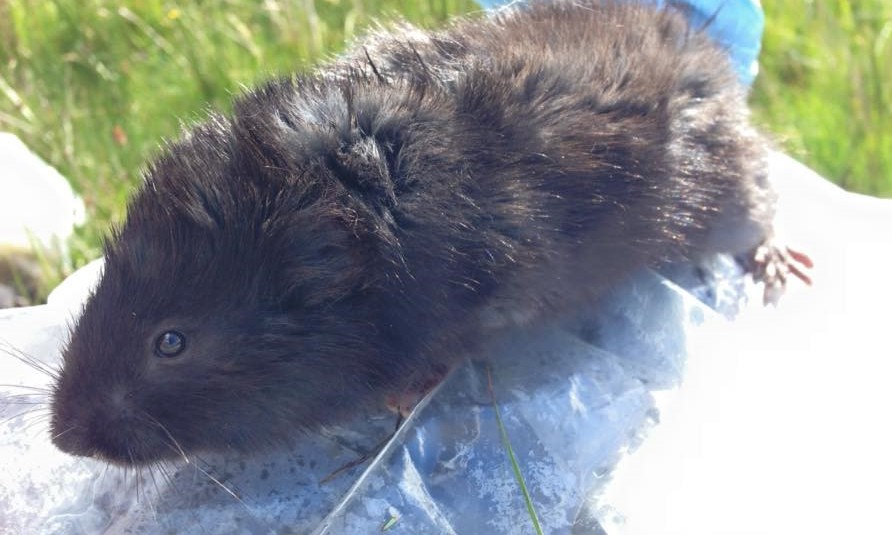Water voles as ecosystem engineers

Investigating how water voles engineer their habitats and the impact their decline is having
The project
Water voles create burrows to live in and their digging activity changes the make up of the soil by drying it out. This then has a knock on effect on what plants grow in the vicinity. With water voles having been lost from much of their previous habitat, have local ecosystems been impacted negatively?
The solution
![Water vole burrow Cromalt patch8 [314813]](https://ptes.org/wp-content/uploads/2016/05/Water-vole-burrow-Cromalt-patch8-314813-225x300.jpg) Our intern Deon Roos is investigating to what extent water voles carry out ‘ecosystem engineering’. These ecosystem engineers are species (such as beavers) which through their actions alter the availability of resources (such as water or fertiliser) for natural communities. Water voles accomplish this through creating burrow networks. This dries the surrounding wet soil and promotes soil microbial activity which in turn regulates the availability of nitrogen, an important nutrient for plant growth. Through his previous research, Deon discovered that this ecosystem engineering effect takes years to build up and that water voles can dramatically change the plant community along waterways. With water voles having been lost from much of their UK range, Deon is looking to answer the question: how long would it take for these ecosystem engineering effects to be reinstated and/or lost and how far does this effect carry on for beyond the burrow itself?
Our intern Deon Roos is investigating to what extent water voles carry out ‘ecosystem engineering’. These ecosystem engineers are species (such as beavers) which through their actions alter the availability of resources (such as water or fertiliser) for natural communities. Water voles accomplish this through creating burrow networks. This dries the surrounding wet soil and promotes soil microbial activity which in turn regulates the availability of nitrogen, an important nutrient for plant growth. Through his previous research, Deon discovered that this ecosystem engineering effect takes years to build up and that water voles can dramatically change the plant community along waterways. With water voles having been lost from much of their UK range, Deon is looking to answer the question: how long would it take for these ecosystem engineering effects to be reinstated and/or lost and how far does this effect carry on for beyond the burrow itself?
Latest findings
- Read the project findings
